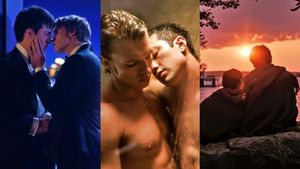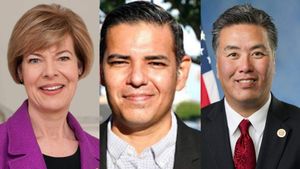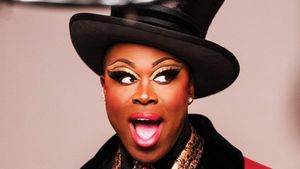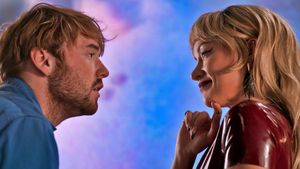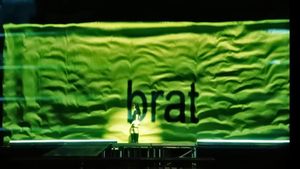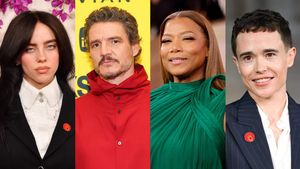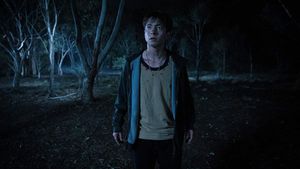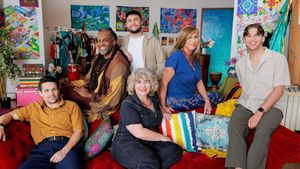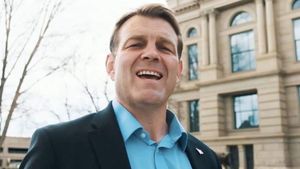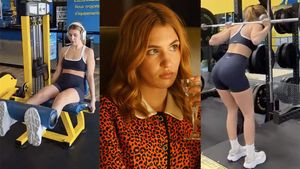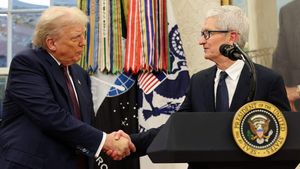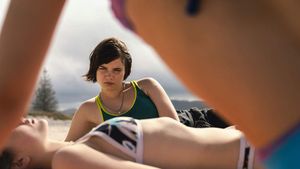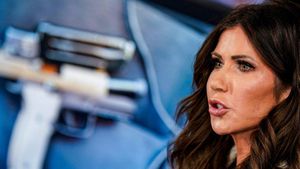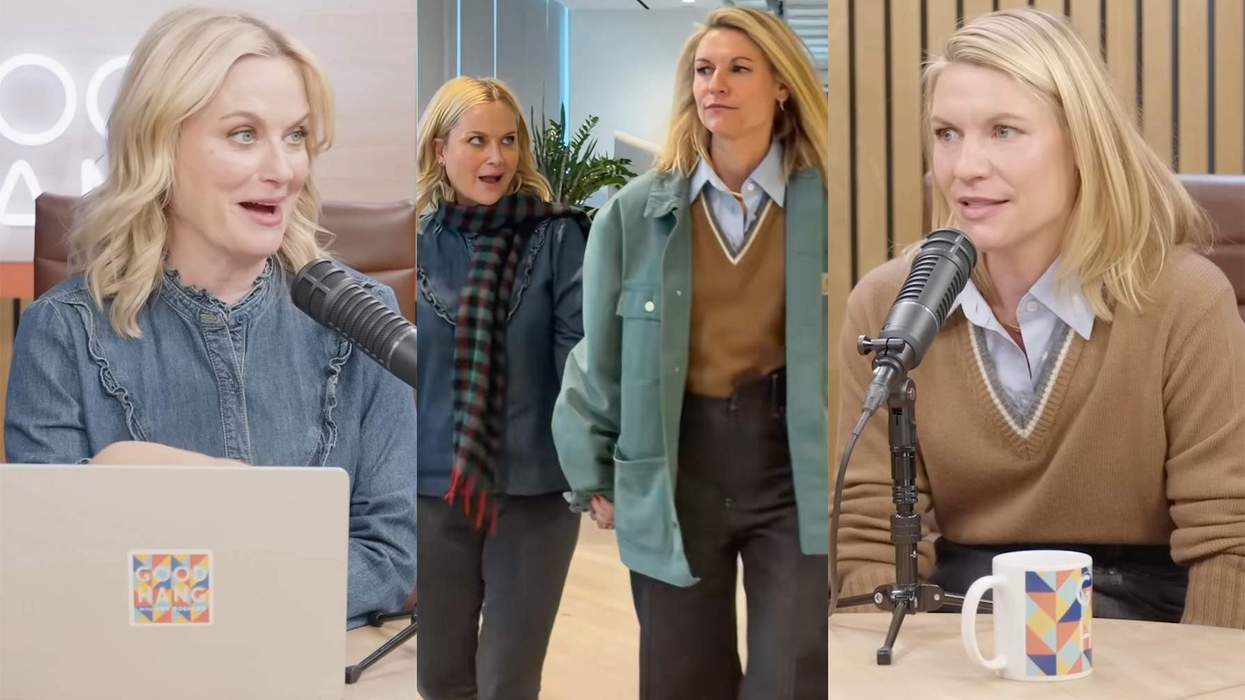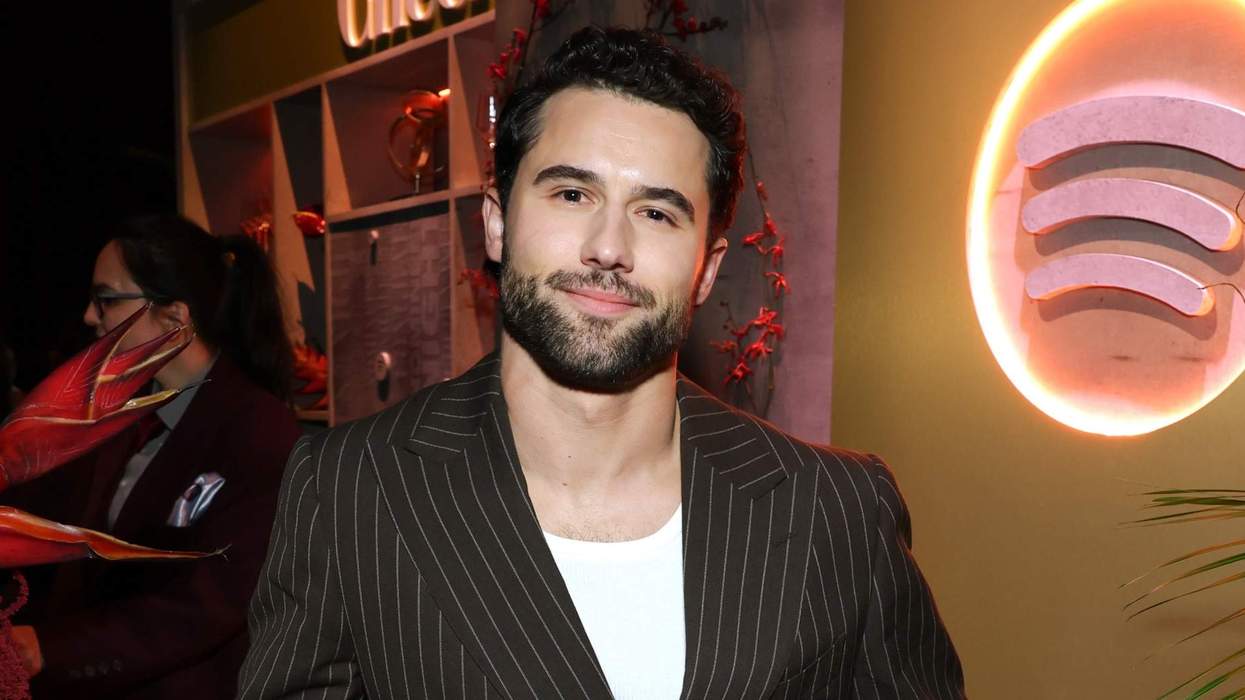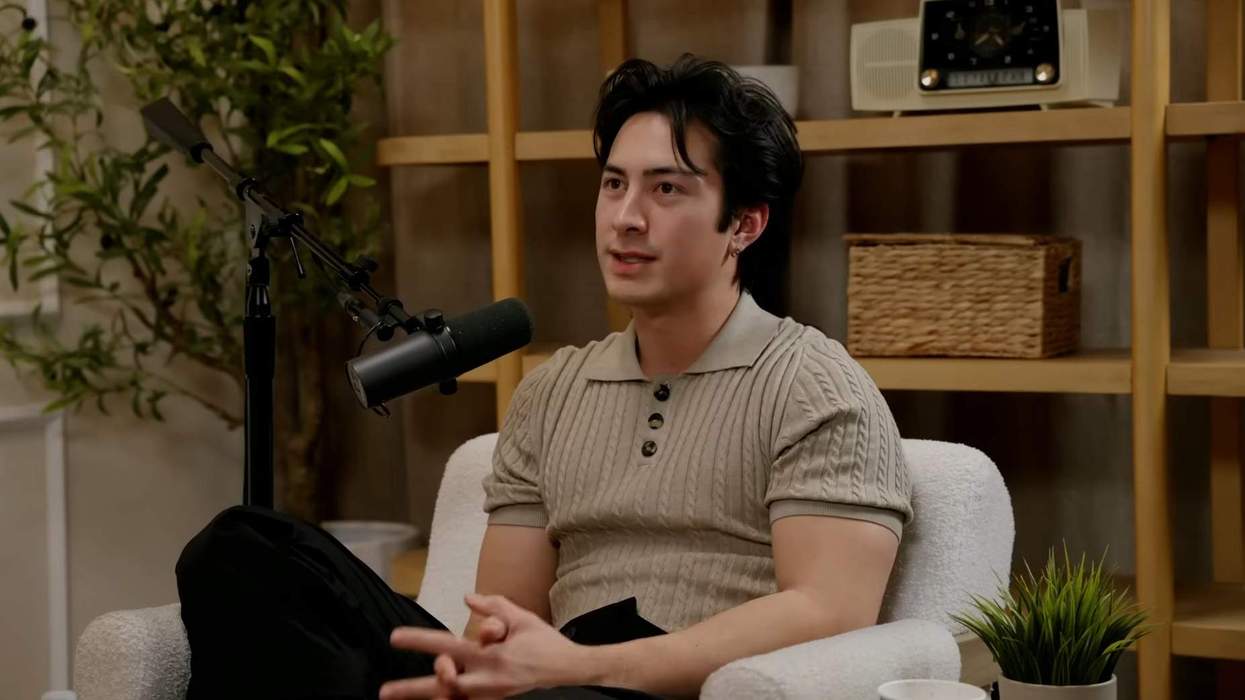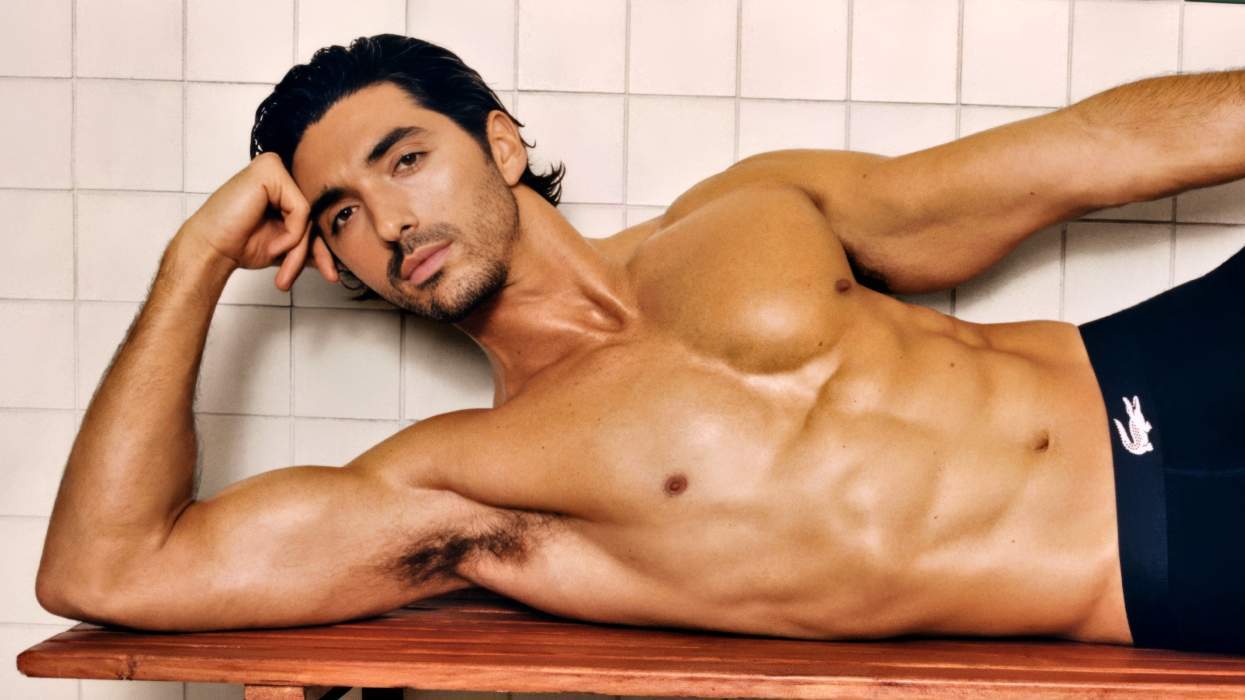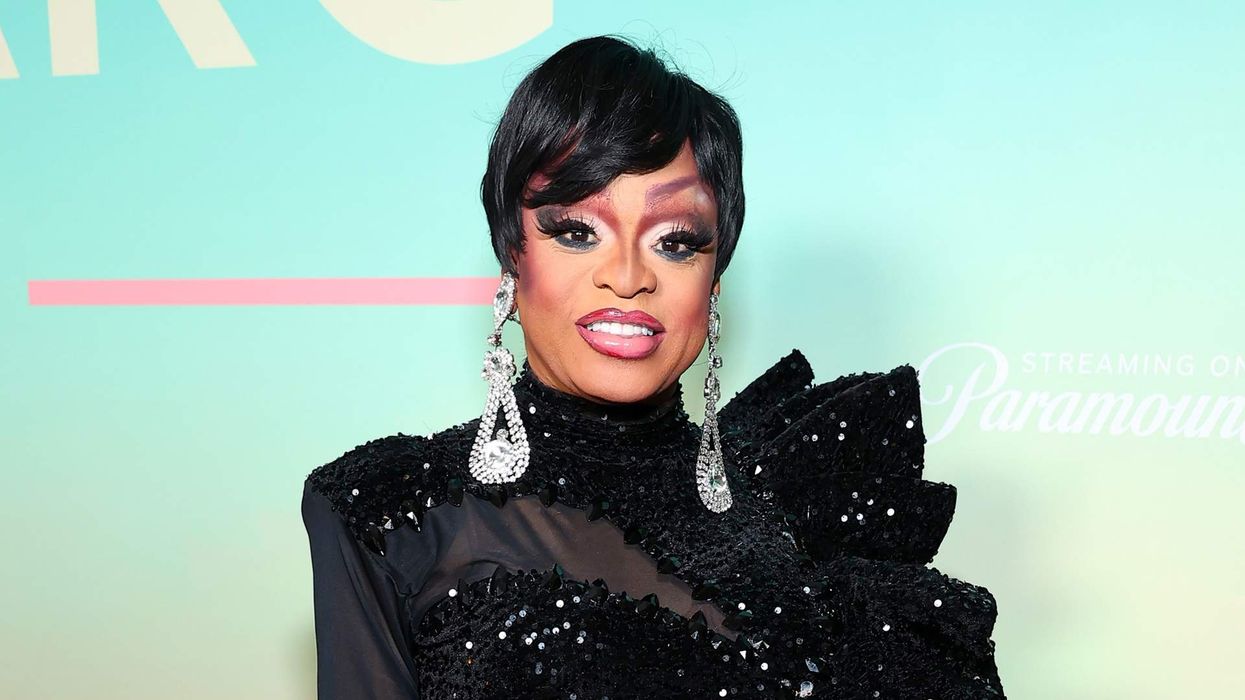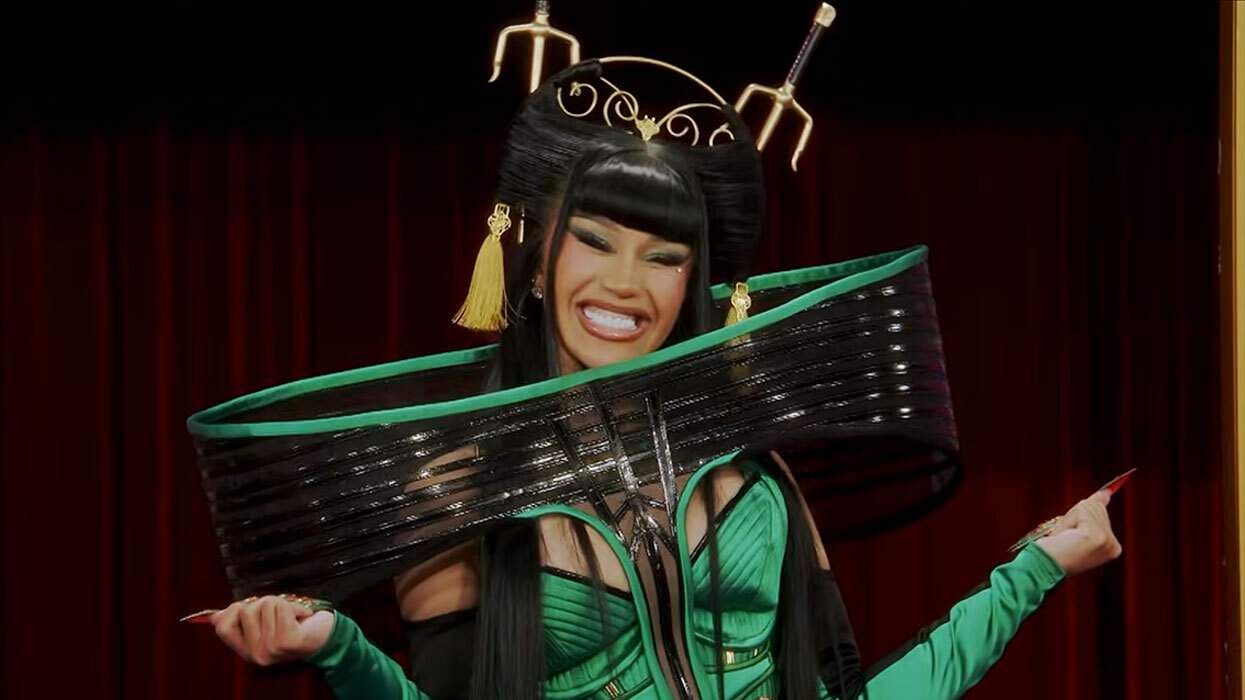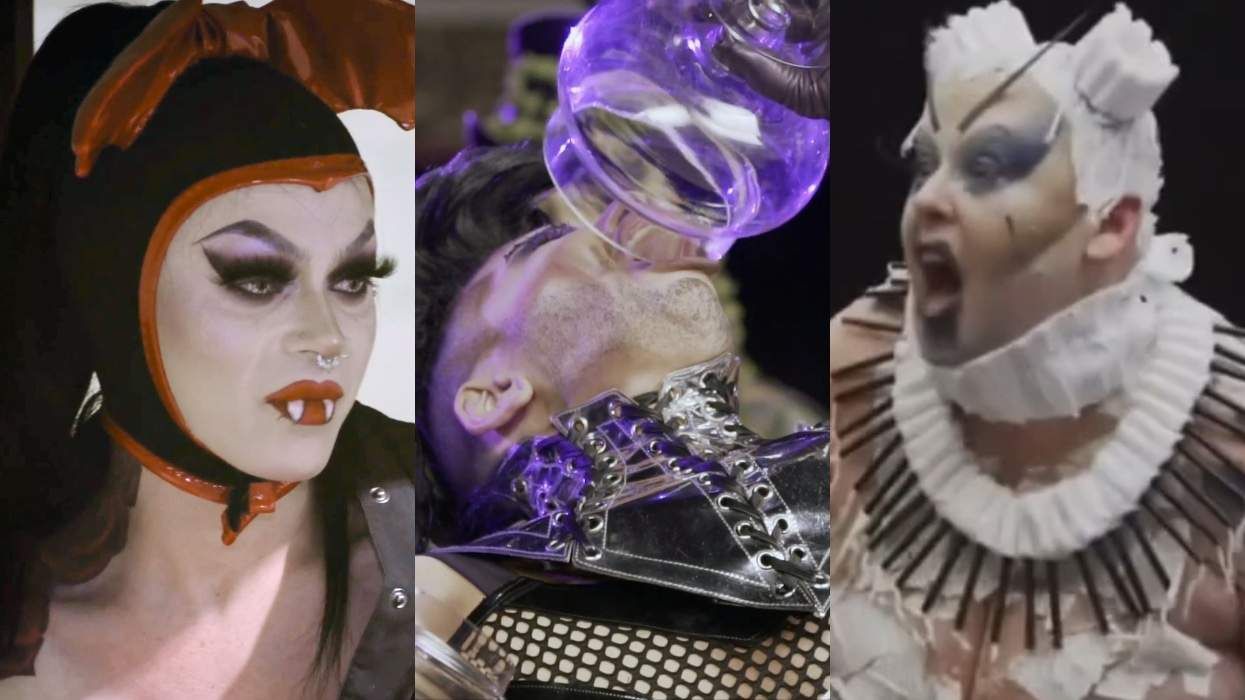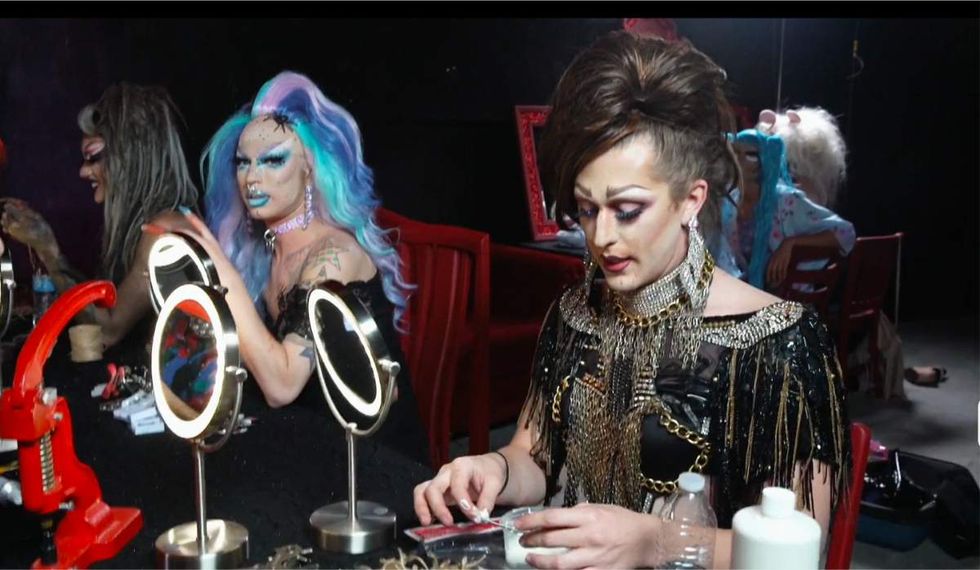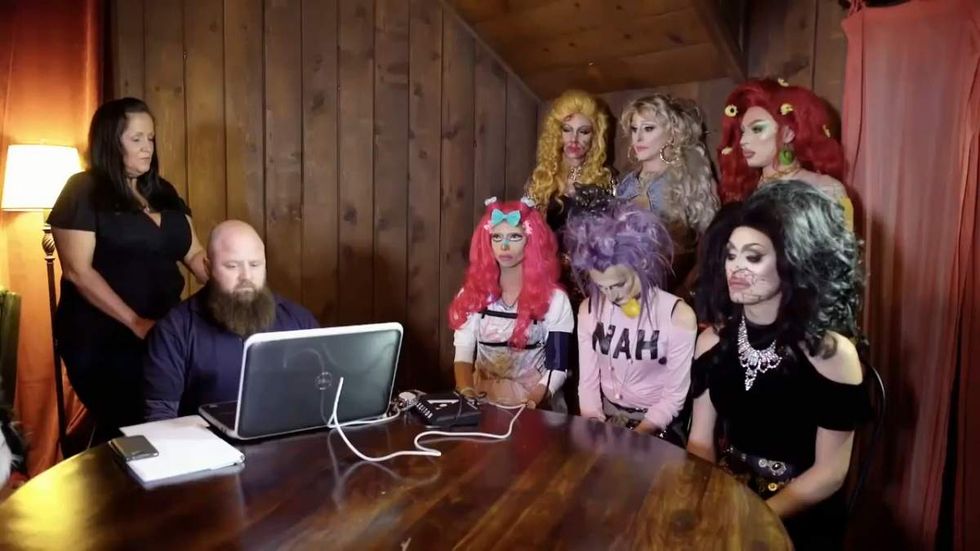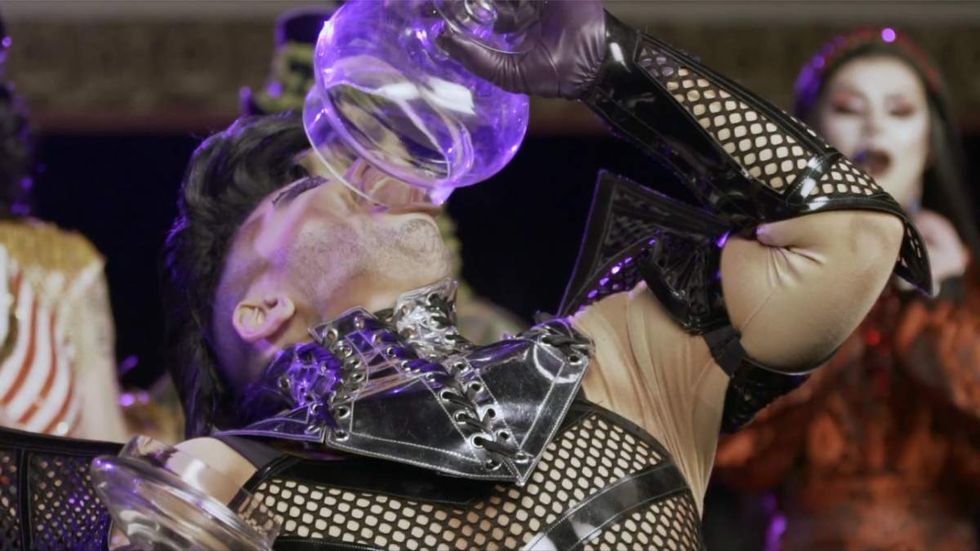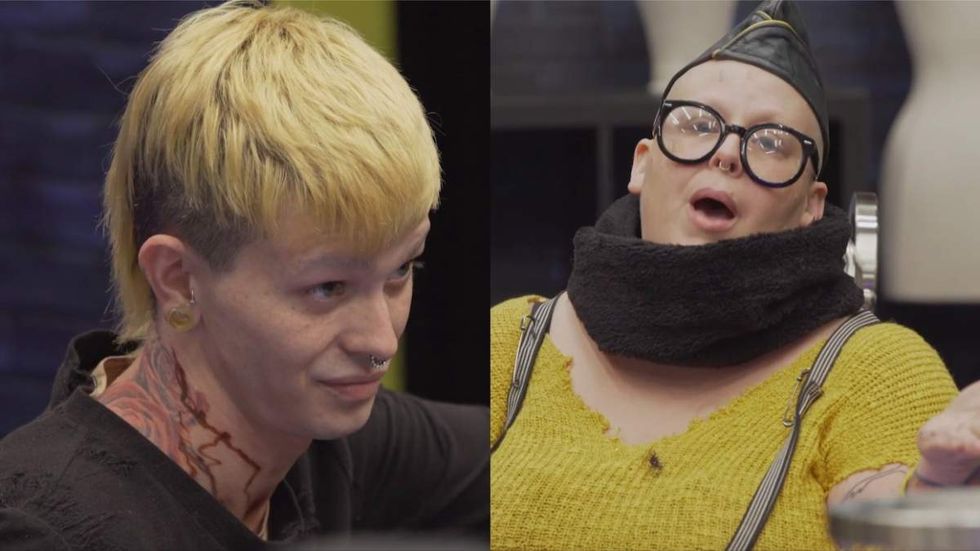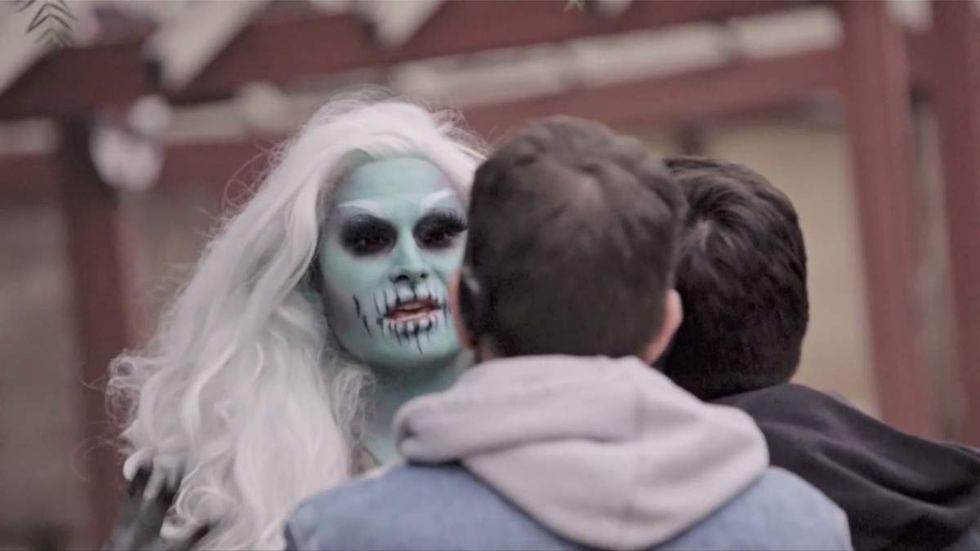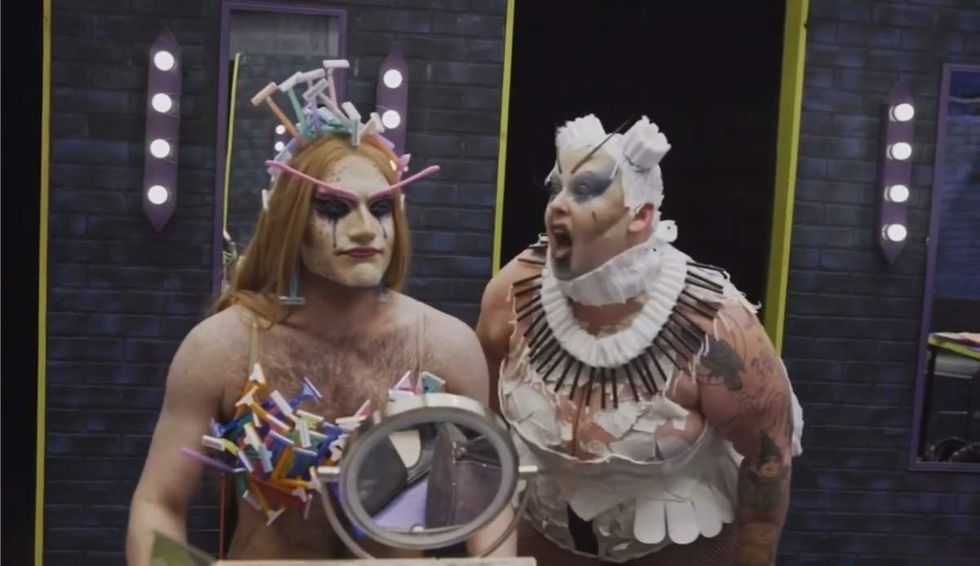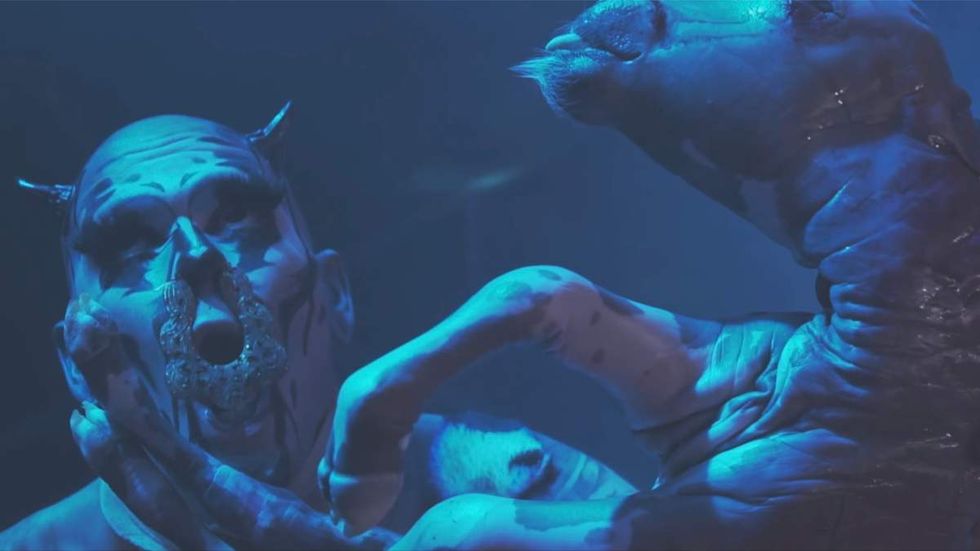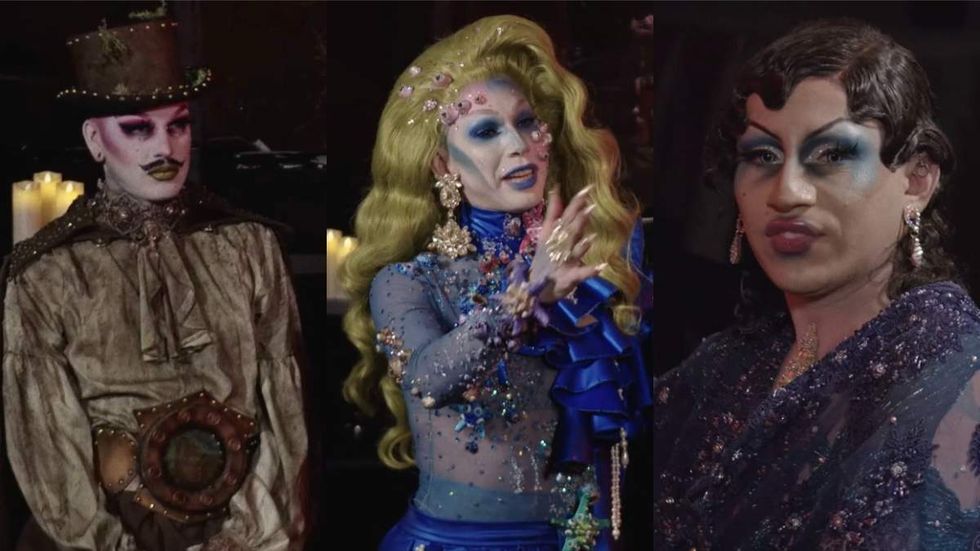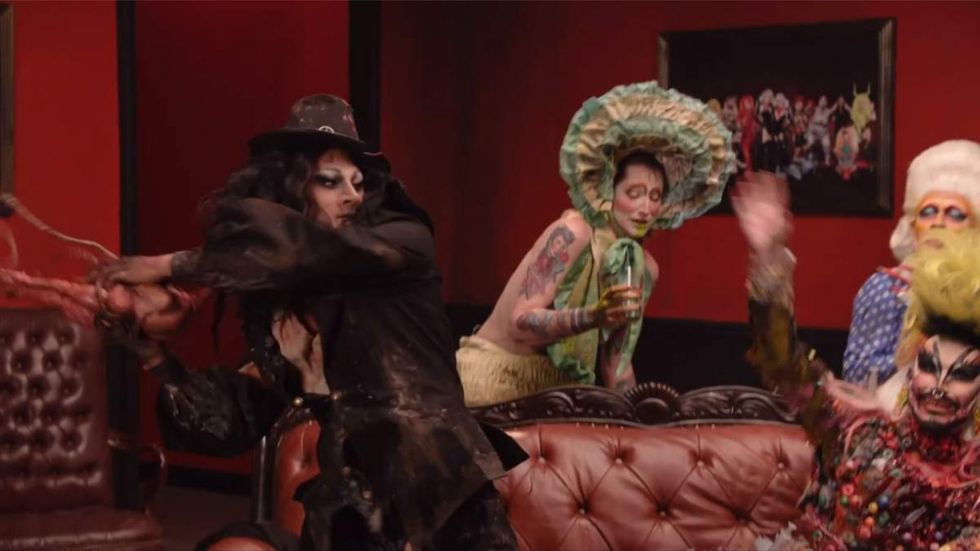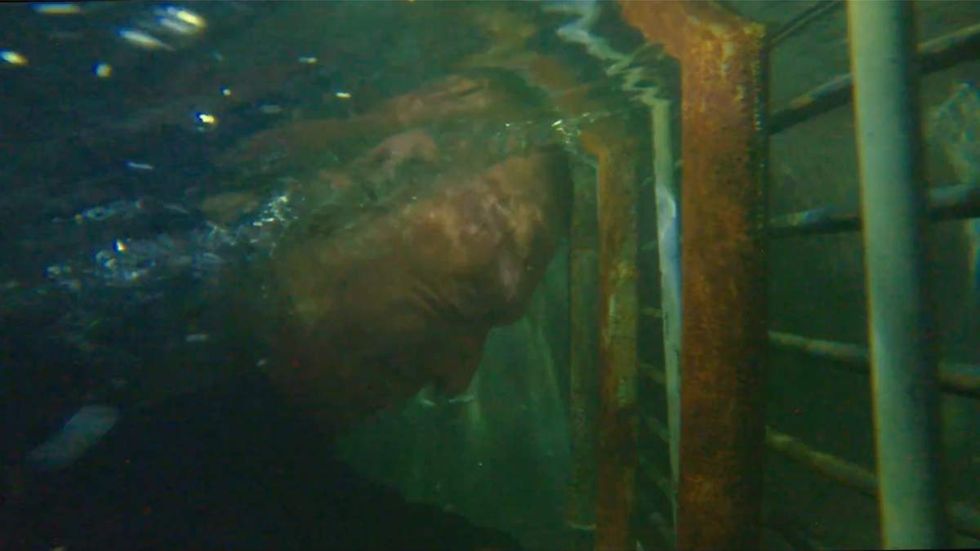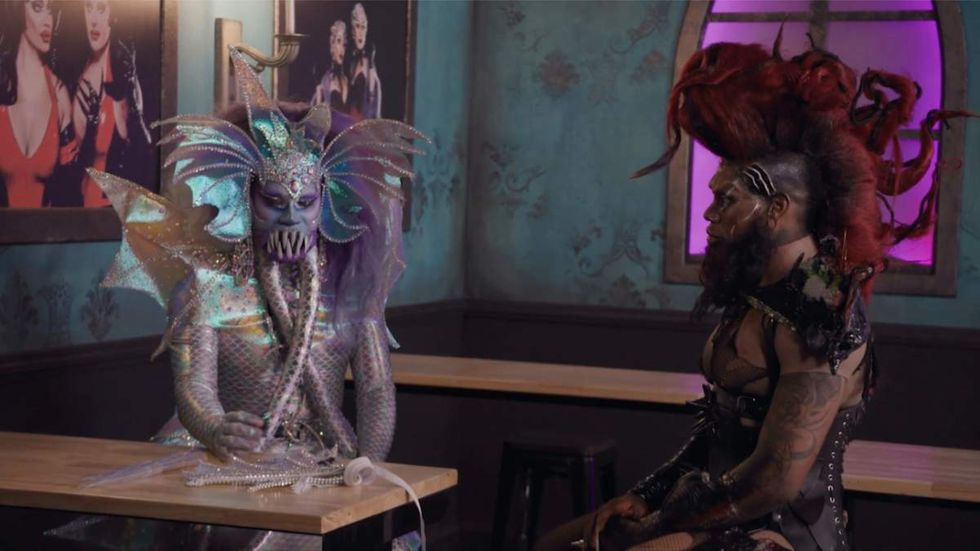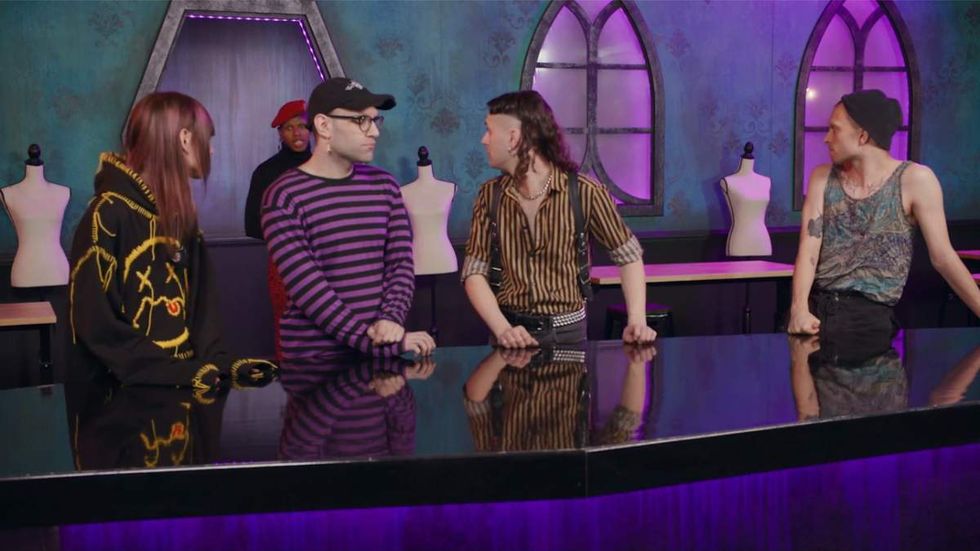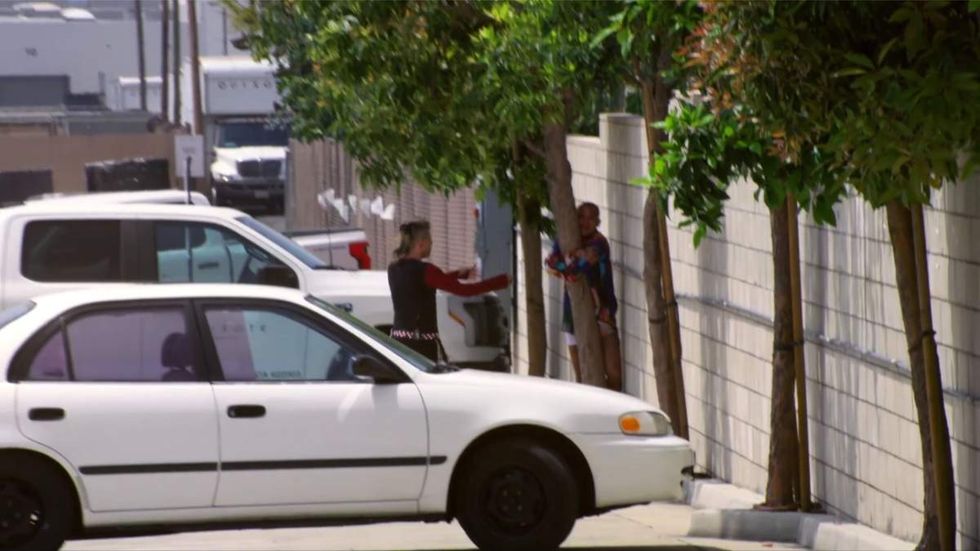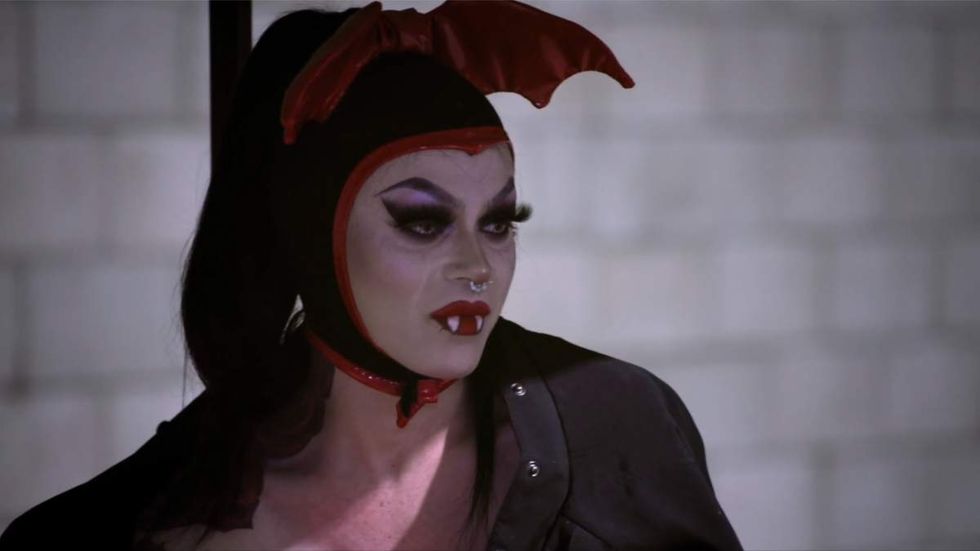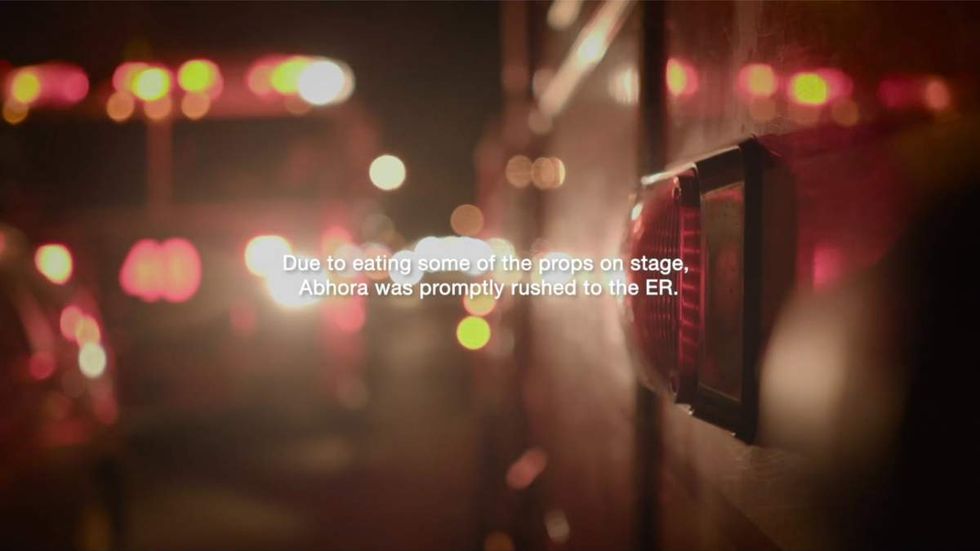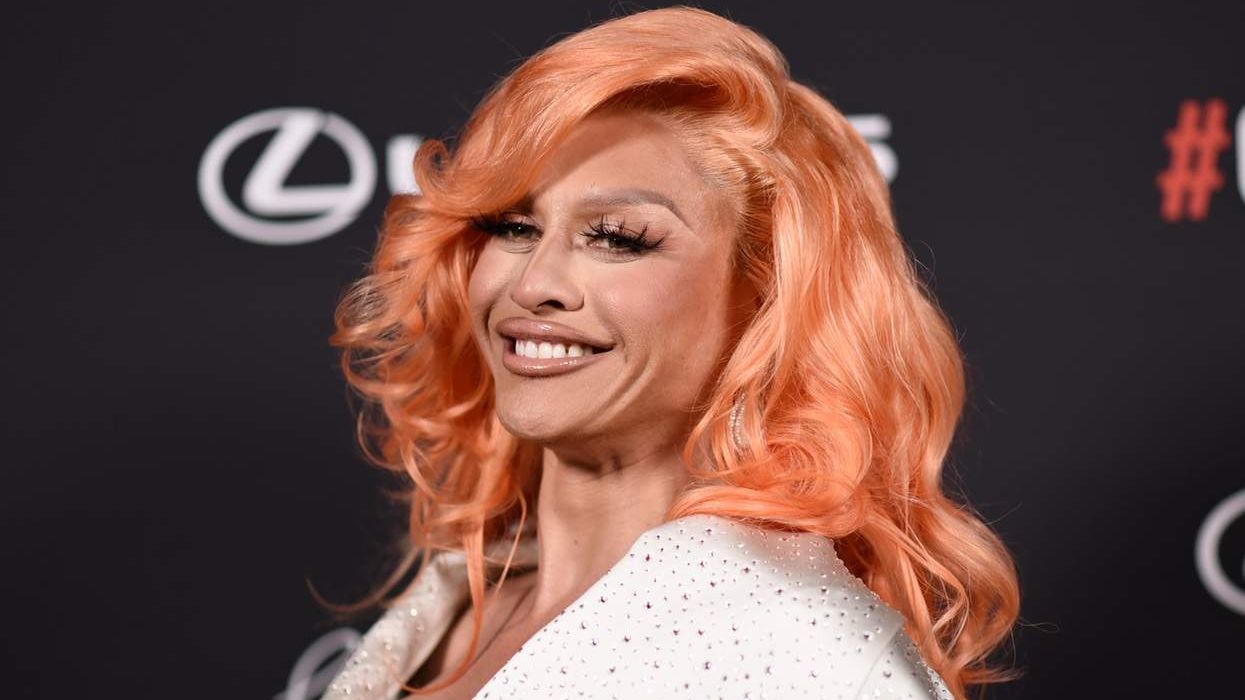BOA, aka Bitch on Arrival, might not have snatched the crown in her season of Canada's Drag Race, but the Toronto-based queen did snatch our hearts. Her vulnerability and honesty — whether it was opening up about her experiences with ADHD, addiction, eating disorders, and even sexual assault — was incredibly moving, and her ebullient personality alongside hilarious confessionals made us forever stans. She wasn't kidding when she said she wasn’t like “udder queens,” and we wouldn't have it any other way.
The always frank BOA spoke up again this week, this time on the deeply personal subject of body confidence as a featured speaker at The BodCon TALKS: Beauty & Body Confidence. During the panel, which featured fellow beauty influencers Taj Reed and Aysha Harun, BOA opened up about her sometimes challenging journey to self-love and how drag helped her appreciate and embrace her beauty regardless of her size.
PRIDE sat down with the drag star to talk about what body positivity means to her, feeling overlooked by the fandom, getting through the pandemic, and her exciting plans for the future.
You were featured on The BodCon Talks panel this week, how was that experience?
It was such an amazing experience to be able to be with like-minded people, people of different backgrounds, talking about struggles that we deal with on a daily basis, as well as what we can do to make things better for us and how to love ourselves. It really was such an amazing event.
Oh, that's so awesome. What does body positivity mean to you?
Honestly, I'm going to say two words: self-love. If you're able to love yourself whether you’re super skinny, or big, or your hair is long or short or whatever — as long as you love yourself and you're OK with what you see in the mirror.
Tell me about your personal journey to body positivity. Was drag a part of that for you?
When I was younger, I was a pretty big kid. Getting into high school, I started dieting a lot and working out excessively and I started losing weight, people started paying attention to me. And I really, I really liked that feeling. So I kind of pushed it pretty hard. And it actually became an eating disorder.
Then I started doing drag and I took myself too seriously, I just wanted to be that bitchy-icon-pop-starry kind of queen. And people really didn't like me because I wasn't the nicest. Honestly, if I met myself like seven years ago, I would have been like, “What an idiot. Stupid bitch, let's fight her.” [laughs] And then I got together with my partner — it's now been seven years — and I started relaxing a bit and letting myself just chill and not be so serious all the time. When you get in relationships, some weight comes on, that's natural… and I realized, maybe I'm like a comedy queen or something.
I've always had a crazy stupid sense of humor but I've always been just, like, kind of smug. For me, being able to be nice to people and stupid and not take myself seriously. It's been great and that came with gaining weight, honestly.
Do you feel like your self-love came as a result of not taking yourself too seriously? Or do you think taking yourself not-too-seriously allowed you to feel confident in your skin?
I think that taking myself not-too-seriously allowed me to be more confident in my skin because whatever size I am, I'm able to make myself look beautiful by my standards. I'm able to have reached people who enjoy what I do and love me, and I'm able to be still so sickening and do everything I want to do. And now, it's with almost a better message.
Do you think body positivity is something that you can achieve? Or do you find that a continuous process?
Definitely a daily struggle. Because unfortunately I'm not given the same opportunities as other queens because of my size [from] certain gigs, [and with] the following. So, some days, it's really hard to pick myself up and realize that I am that bitch. Right. And other days, I wake up, and I'm just like, ready to roll.
Have you experienced that kind of body discrimination in the drag community?
I don't think the drag community itself…as much as it is an [online] following. But if you look at any franchise, really any franchise of any show, it's always the people who are dark-skinned, who are larger, who don't look “conventional”, that have the smaller amount of followers.
Do you still feel like there's a lot of stigma in the LGBTQ+ community around living in bigger bodies?
No, not at all. [pauses] Of course! Yeah, no, absolutely…the world is so superficial. I think it's gonna be there no matter what, but it's up to us on how we decide to tackle it. And it's up to us as a whole to decide the ways to achieve a different type of beauty we should be celebrating… there are so many more different versions of beautiful and it's so unfortunate that it's not all being appreciated at the moment.
That's one of the reasons I love drag so much. Sure, there’s conventional beauty in there but it’s also such an amazing showcase for unconventional beauty.
I do love drag so much, honestly. I love that weird drag, too. Like Jimbo is amazing. Who else do I love? There's a queen here in Toronto. Her name is Allysin Chaynes. She's got beautiful makeup, OK outfits, and a really hairy chest and it's just so cool to me. I've always loved that kind of just alternative kind of beauty... or look at Dragula. Like, those performers are just so incredible.
Definitely. Do you feel as a performer that there’s a lot more space for body diversity among drag queens?
Yeah, there's space. It's just harder to break into things. I guess, like being a bigger person… it's harder to do things in any industry. But there is space. And the thing is drive. Whatever kind of drag you do, I always say to do it [and] be professional. Be good to work with. Be punctual. And be entertaining. I think that [if you] do that, you have a good shot.
We've been living through a pandemic and the timing was pretty tough in terms of when your season of Drag Race hit. How has that experience been for you?
It was so hard.
Having Drag Race was therapeutic for me in the audience, but I imagine it was a lot different for you?
It's been so great for people, but it's like you get on Drag Race and you expect to tour the world and do amazing stuff and be on the cover of magazines and shit. And a lot of us, most of us, didn't get any of that, or even a fraction of that. That was really, really difficult to deal with. But on the other side, we still had the fans, so that was really good. And you know what, even now, the opportunities that were there for us were still better than for the ones who weren't on Drag Race. So we're thankful for that. It just really almost felt like we got the biggest promotion of our lives and the factory broke down.
I can see that. Right now we're kind of stuck at home and I don't know about you but it’s led to a lot of self-reflection.
Oh yeah.
How has that been for you?
Yeah, I'm definitely more spiritual. Definitely on that side. Pretty much everyone has struggled with mental health at one point or another. That was really, really difficult for me to kind of process. I felt very betrayed by the world when it happened. Yeah, very, very brokenhearted. And over the year or so, however...how long have we been in this thing for? Like 10 years?
A million years? six months? Who knows? Does time even exist anymore?
I was able to get a hold of a new psychiatrist. So, I was able to look at myself and learn the kind of person that I am, the kind of people that I want around me.
I think mental health is such an important part of body positivity, too.
Absolutely.
Can you talk a little bit more about what you mean by feeling betrayed?
I was newly sober. I was really working really hard and making a lot of amazing changes in my life…so for this thing that was supposed to be so exciting and one of the biggest things in my life to be like, kind of shut down, I took it very personally.
Like the universe betrayed you.
Yeah, exactly.
It feels like there’s some light at the end of the tunnel now. Do you have any plans for what’s next for you?
October, actually, I'm going to go on tour for the North Stars tour with Scarlet Bobo, Tynomi Banks, Jimbo, Juice Boxx, and Denali is going to be there as well. So I'm really excited about that. And then hopefully they ask me for All Stars or something.
With season two of Canada’s Drag Race on the way, as someone who has been through it, what is your best advice for the new girls?
Get your moments, shoot first, ask questions later. Don't let anyone dim your shine. I got really in my head on the show and I felt like I was being — not targeted — but I felt like some of the girls were breathing down my neck. So I let that really dim me down and make me afraid to take my chances. So don't let that happen. And stand up for yourself too. Your feelings are valid, and you're allowed to bring things up that upset you and accountability should be taken.
I think that's just good life advice. I do hope there's an All Stars where we get to see more of BOA.
I hope that I can have that interview with you soon. [laughs]








